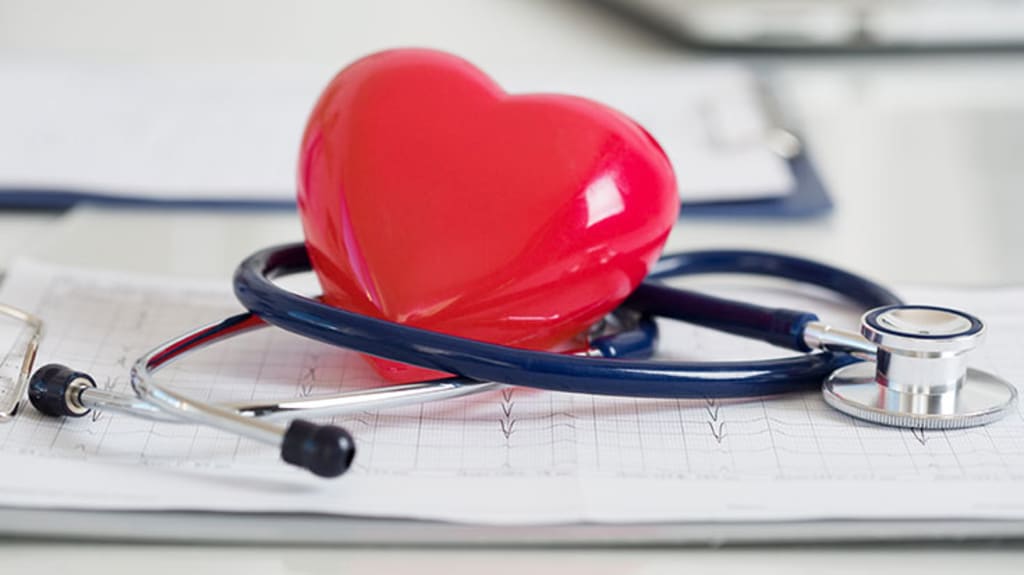Preparing With Heart Disease
Heart Healthy Tips To Get You Through A Disaster

18.2 million people have some type of heart disease, costing the healthcare industry 203 billion dollars each year. It can happen at any age, race, or gender, oftentimes without warning. Heart disease is the leading cause of death in the US. It takes a life every 33 seconds. That’s 1 in 5 people. Heart disease is when the blood vessels and heart become so sick it struggles to complete everyday tasks to keep you functional. There are several conditions that can cause heart disease, with Coronary Artery Disease (CAD) being the most common. When disasters strike, you will still have heart disease. Today, on Wear Red Day, let’s look into getting disaster-ready with heart disease.
Building A Heart-Friendly Pantry

While setting up your food pantry, focus on storing foods that promote good heart health. A healthy diet can lower cholesterol levels and high blood pressure. Create a well-balanced meal plan using the food pyramid as your guide. Focus on items that contain plenty of whole grain or wholemeal in it. For meat options, look at lean cuts like skinless chicken or oily fish like tuna. Nuts and beans are a delicious, versatile food that is very heart-healthy. You’ll want to limit stocking up on dairy products and those high in salt and sugar. Include enough fruits and vegetables to cover 5-7 daily servings. Despite the popular myth, there is no nutritional difference between canned and fresh produce.
Storing Medications

If you have a heart condition, then it is likely your doctor has you on a medication or two to help you manage it better. This medicine is a very important part of your life. Talk to your doctor about getting a prescription for the highest limit they can prescribe that your insurance will cover. Most insurance companies have a policy in place that allows you to have a 3-6 month fill on any life-saving medication. Put two weeks’ worth of medication in your bug-out bag with extra bottles you can get from the pharmacist. If you require a medical device, they can approve for you to get a new one once or twice a year. Even if your old one is still good, take the extra one to keep in your bug-out bag.
Other Medical Supplies

You should keep on hand any extra supplies you depend on to manage your heart condition. The first important item is a blood pressure cuff to check your heart during stressful times. A pulse oximeter is a device you clip onto your finger or toe to measure the oxygen level in your blood. This can serve as an early warning detection system that a heart attack is possible. Both devices are something you should familiarize yourself with if you have a heart condition prior to a disaster. A bottle of unexpired aspirin comes in handy when you begin to feel symptoms similar to a heart attack. Get the chewable kind, since doctors recommend you chew it to speed up the body’s absorption of it.
Good Oral Hygiene

People with heart disease can develop bacterial infections in their mouths very easily. Even during a disaster, you should still brush your teeth twice a day and floss once. You should keep a toothbrush along with a small tube of toothpaste in your bug-out bag in case you forget to grab yours in a hurry. Most stores have travel packs that contain both in a plastic pouch or tube. Keep a jug of water under your sink for this reason. A one-gallon jug just for dental needs can last a family of four a week, maybe longer if rationed properly. If unable to brush your teeth, replace it with a cap full of alcohol-free mouthwash. When finished brushing your teeth, brush your tongue or use a tongue scraper to clean it as well.
The Aftermath

Physical activity may help lower your risk of heart disease, but too much of it can exacerbate it. Never push your body too much. If you start feeling tired or are in pain, it's important to stop. Avoid doing jobs that require heavy lifting and high physical exertion. There are plenty of jobs you can do to help your community rebuild after a disaster that doesn’t require giving yourself a heart attack. You can serve food to those who are displaced in the communal kitchen area. You can help check people into public shelters to reunite lost family members. Directing traffic will help first responders trying to drive through the mess left behind. If you are a crafty person, provide entertainment that will brighten the survivors’ day.
About the Creator
M.L. Lewis
Welcome to my little slice of pie. This blog will primarily focus on prepping and homesteading skills with a sprinkle of fiction every now and then.






Comments (1)
A very intriguing story... Good luck with this!